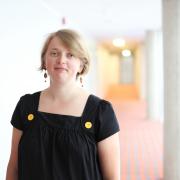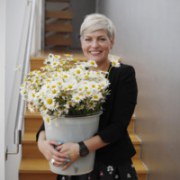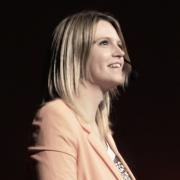New formats for public engagement.
Find this session's presentations here.
Both technology and what people are expecting awe-inspiring events to look like is changing fast: science communication and public engagement activities need to keep up and adapt. Age-old science communication formats yearn for modernization and reformation. In this workshop, PE professionals from all over Europe will take the participants on a hands-on journey to get a taste of some of the innovative formats that have the X factor, for instance science espressos and reverse science cafés. Participants will not only get a theoretical overview of innovative public engagement formats but an explainer + researcher team will also carry out two activities with the audience so that everyone involved can get a first-hand experience. The activities will be based on the lessons learnt during the EU-funded SPARKS project.
Facilitator
Coordinator of External Funding
Session speakers
Expert Associate at Center for the Promotion of Science
Center for the Promotion of Science/Institute for Human Genetics
Expert Associate for International Cooperation at the Center for the Promotion of Science and a PhD candidate in human genetics. Being present at both sides as a researcher and a science communicator she is fully aware of all the issues regarding engaging scientists in SC&PE activities and presenting new formats. Dubravka will share here experience and ideas and shed a light on the problem from three sides: as a researcher, a science event organizer and a visitor.
Science and technology are embedded in every aspect of modern life. The role of science centres and museums is to provide opportunities for public awareness of and participation in science and technology. Science centres have to strengthen and connect the informal science education community by
catalysing conversations across the field around issues and topics of common concern. Introducing new formats for public engagement can provide
opportunities for public awareness of and participation in science and technology. It can be exciting, but also stressful at the same time. Are we really ready to stimulate mutual learning by publics and by scientists, allowing everyone who participates to develop new or more nuanced understandings of issues in new shapes and formats? How do we take the first steps?
Senior Project Manager and Coordinator of the Sparks Project, a traveling exhibition that is showing innovative ways of putting RRI into practice in the field of health and medicine. She will share the big picture of how participative formats arouse and connect to a traveling exhibition, enriching the bridges between different publics and scientific topics, widening our perceptions how we can participate in scientific fields that relate directly to each of us.
Head of Science and Outreach
How do you create and maintain a fruitful collaboration with researchers at universities and in the industry? As part of the Sparks project, collaboration with experts has been a key element in carrying out a range of activities. With a background in research Tina Ibsen will give some tips and tricks on how best to reach out to experts and get them involved in your activities and projects.
Ms Anna Dławichowska has worked in Copernicus Science Centre since 2009. In 2015 she joined the Sparks project team and in March 2016 she became the coordinator of it in CSC. She co-designed the activities for the Sparks and implement them. As science communicator she found that transdisciplinary is very effective way to solve problems that bother both scientists and society. This is main reason why she involves to create new formats of useful cooperation for broadly defined stakeholders of science and engineering.






